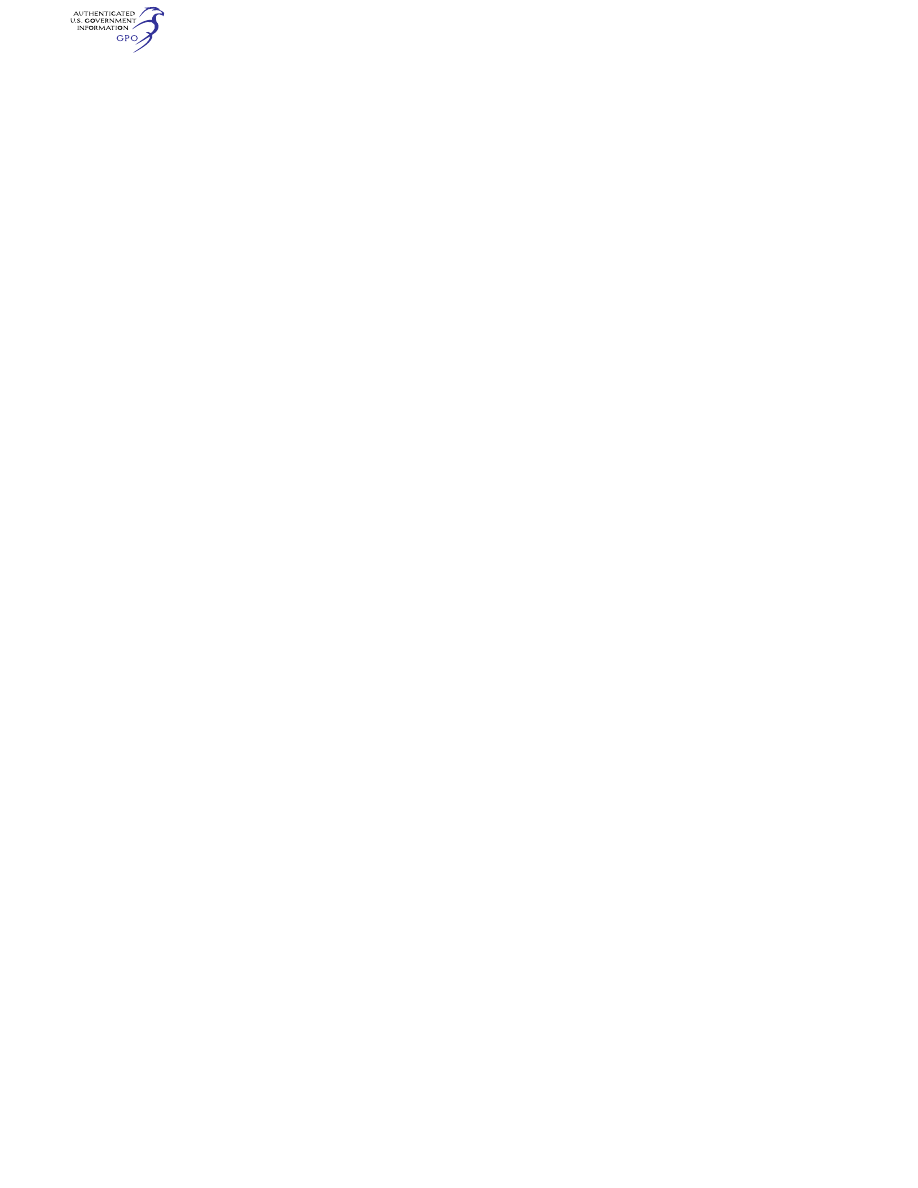
538
14 CFR Ch. I (1–1–24 Edition)
§ 61.105
(2) Certified that the person is pre-
pared for the required knowledge test.
(e) Pass the required knowledge test
on the aeronautical knowledge areas
listed in § 61.105(b) of this part.
(f) Receive flight training and a log-
book endorsement from an authorized
instructor who:
(1) Conducted the training in the
areas of operation listed in § 61.107(b) of
this part that apply to the aircraft rat-
ing sought; and
(2) Certified that the person is pre-
pared for the required practical test.
(g) Meet the aeronautical experience
requirements of this part that apply to
the aircraft rating sought before apply-
ing for the practical test.
(h) Pass a practical test on the areas
of operation listed in § 61.107(b) of this
part that apply to the aircraft rating
sought.
(i) Comply with the appropriate sec-
tions of this part that apply to the air-
craft category and class rating sought.
(j) Hold a U.S. student pilot certifi-
cate, sport pilot certificate, or rec-
reational pilot certificate.
[Doc. No. 25910, 62 FR 16298, Apr. 4, 1997, as
amended by Amdt. 61–124, 74 FR 42558, Aug.
21, 2009]
§ 61.105
Aeronautical knowledge.
(a)
General. A person who is applying
for a private pilot certificate must re-
ceive and log ground training from an
authorized instructor or complete a
home-study course on the aeronautical
knowledge areas of paragraph (b) of
this section that apply to the aircraft
category and class rating sought.
(b)
Aeronautical knowledge areas. (1)
Applicable Federal Aviation Regula-
tions of this chapter that relate to pri-
vate pilot privileges, limitations, and
flight operations;
(2) Accident reporting requirements
of the National Transportation Safety
Board;
(3) Use of the applicable portions of
the ‘‘Aeronautical Information Man-
ual’’ and FAA advisory circulars;
(4) Use of aeronautical charts for
VFR navigation using pilotage, dead
reckoning, and navigation systems;
(5) Radio communication procedures;
(6) Recognition of critical weather
situations from the ground and in
flight, windshear avoidance, and the
procurement and use of aeronautical
weather reports and forecasts;
(7) Safe and efficient operation of air-
craft, including collision avoidance,
and recognition and avoidance of wake
turbulence;
(8) Effects of density altitude on
takeoff and climb performance;
(9) Weight and balance computations;
(10) Principles of aerodynamics, pow-
erplants, and aircraft systems;
(11) Stall awareness, spin entry,
spins, and spin recovery techniques for
the airplane and glider category rat-
ings;
(12) Aeronautical decision making
and judgment; and
(13) Preflight action that includes—
(i) How to obtain information on run-
way lengths at airports of intended
use, data on takeoff and landing dis-
tances, weather reports and forecasts,
and fuel requirements; and
(ii) How to plan for alternatives if
the planned flight cannot be completed
or delays are encountered.
[Doc. No. 25910, 62 FR 16298, Apr. 4, 1997;
Amdt. 61–103, 62 FR 40902, July 30, 1997]
§ 61.107
Flight proficiency.
(a)
General. A person who applies for
a private pilot certificate must receive
and log ground and flight training from
an authorized instructor on the areas
of operation of this section that apply
to the aircraft category and class rat-
ing sought.
(b)
Areas of operation. (1) For an air-
plane category rating with a single-en-
gine class rating:
(i) Preflight preparation;
(ii) Preflight procedures;
(iii) Airport and seaplane base oper-
ations;
(iv) Takeoffs, landings, and go-
arounds;
(v) Performance maneuvers;
(vi) Ground reference maneuvers;
(vii) Navigation;
(viii) Slow flight and stalls;
(ix) Basic instrument maneuvers;
(x) Emergency operations;
(xi) Night operations, except as pro-
vided in § 61.110 of this part; and
(xii) Postflight procedures.
(2) For an airplane category rating
with a multiengine class rating:
(i) Preflight preparation;
(ii) Preflight procedures;
VerDate Sep<11>2014
14:00 Mar 14, 2024
Jkt 262047
PO 00000
Frm 00548
Fmt 8010
Sfmt 8002
Q:\14\14V2.TXT
PC31
aworley on LAPBH6H6L3 with DISTILLER

539
Federal Aviation Administration, DOT
§ 61.107
(iii) Airport and seaplane base oper-
ations;
(iv) Takeoffs, landings, and go-
arounds;
(v) Performance maneuvers;
(vi) Ground reference maneuvers;
(vii) Navigation;
(viii) Slow flight and stalls;
(ix) Basic instrument maneuvers;
(x) Emergency operations;
(xi) Multiengine operations;
(xii) Night operations, except as pro-
vided in § 61.110 of this part; and
(xiii) Postflight procedures.
(3) For a rotorcraft category rating
with a helicopter class rating:
(i) Preflight preparation;
(ii) Preflight procedures;
(iii) Airport and heliport operations;
(iv) Hovering maneuvers;
(v) Takeoffs, landings, and go-
arounds;
(vi) Performance maneuvers;
(vii) Navigation;
(viii) Emergency operations;
(ix) Night operations, except as pro-
vided in § 61.110 of this part; and
(x) Postflight procedures.
(4) For a rotorcraft category rating
with a gyroplane class rating:
(i) Preflight preparation;
(ii) Preflight procedures;
(iii) Airport operations;
(iv) Takeoffs, landings, and go-
arounds;
(v) Performance maneuvers;
(vi) Ground reference maneuvers;
(vii) Navigation;
(viii) Flight at slow airspeeds;
(ix) Emergency operations;
(x) Night operations, except as pro-
vided in § 61.110 of this part; and
(xi) Postflight procedures.
(5) For a powered-lift category rat-
ing:
(i) Preflight preparation;
(ii) Preflight procedures;
(iii) Airport and heliport operations;
(iv) Hovering maneuvers;
(v) Takeoffs, landings, and go-
arounds;
(vi) Performance maneuvers;
(vii) Ground reference maneuvers;
(viii) Navigation;
(ix) Slow flight and stalls;
(x) Basic instrument maneuvers;
(xi) Emergency operations;
(xii) Night operations, except as pro-
vided in § 61.110 of this part; and
(xiii) Postflight procedures.
(6) For a glider category rating:
(i) Preflight preparation;
(ii) Preflight procedures;
(iii) Airport and gliderport oper-
ations;
(iv) Launches and landings;
(v) Performance speeds;
(vi) Soaring techniques;
(vii) Performance maneuvers;
(viii) Navigation;
(ix) Slow flight and stalls;
(x) Emergency operations; and
(xi) Postflight procedures.
(7) For a lighter-than-air category
rating with an airship class rating:
(i) Preflight preparation;
(ii) Preflight procedures;
(iii) Airport operations;
(iv) Takeoffs, landings, and go-
arounds;
(v) Performance maneuvers;
(vi) Ground reference maneuvers;
(vii) Navigation;
(viii) Emergency operations; and
(ix) Postflight procedures.
(8) For a lighter-than-air category
rating with a balloon class rating:
(i) Preflight preparation;
(ii) Preflight procedures;
(iii) Airport operations;
(iv) Launches and landings;
(v) Performance maneuvers;
(vi) Navigation;
(vii) Emergency operations; and
(viii) Postflight procedures.
(9) For a powered parachute category
rating—
(i) Preflight preparation;
(ii) Preflight procedures;
(iii) Airport and seaplane base oper-
ations, as applicable;
(iv) Takeoffs, landings, and go-
arounds;
(v) Performance maneuvers;
(vi) Ground reference maneuvers;
(vii) Navigation;
(viii) Night operations, except as pro-
vided in § 61.110;
(ix) Emergency operations; and
(x) Post-flight procedures.
(10) For a weight-shift-control air-
craft category rating—
(i) Preflight preparation;
(ii) Preflight procedures;
(iii) Airport and seaplane base oper-
ations, as applicable;
(iv) Takeoffs, landings, and go-
arounds;
VerDate Sep<11>2014
14:00 Mar 14, 2024
Jkt 262047
PO 00000
Frm 00549
Fmt 8010
Sfmt 8002
Q:\14\14V2.TXT
PC31
aworley on LAPBH6H6L3 with DISTILLER

540
14 CFR Ch. I (1–1–24 Edition)
§ 61.109
(v) Performance maneuvers;
(vi) Ground reference maneuvers;
(vii) Navigation;
(viii) Slow flight and stalls;
(ix) Night operations, except as pro-
vided in § 61.110;
(x) Emergency operations; and
(xi) Post-flight procedures.
[Doc. No. 25910, 62 FR 16298, Apr. 4, 1997, as
amended by Amdt. 61–110, 69 FR 44868, July
27, 2004]
§ 61.109
Aeronautical experience.
(a)
For an airplane single-engine rat-
ing. Except as provided in paragraph
(k) of this section, a person who applies
for a private pilot certificate with an
airplane category and single-engine
class rating must log at least 40 hours
of flight time that includes at least 20
hours of flight training from an au-
thorized instructor and 10 hours of solo
flight training in the areas of operation
listed in § 61.107(b)(1) of this part, and
the training must include at least—
(1) 3 hours of cross-country flight
training in a single-engine airplane;
(2) Except as provided in § 61.110 of
this part, 3 hours of night flight train-
ing in a single-engine airplane that in-
cludes—
(i) One cross-country flight of over
100 nautical miles total distance; and
(ii) 10 takeoffs and 10 landings to a
full stop (with each landing involving a
flight in the traffic pattern) at an air-
port.
(3) 3 hours of flight training in a sin-
gle-engine airplane on the control and
maneuvering of an airplane solely by
reference to instruments, including
straight and level flight, constant air-
speed climbs and descents, turns to a
heading, recovery from unusual flight
attitudes, radio communications, and
the use of navigation systems/facilities
and radar services appropriate to in-
strument flight;
(4) 3 hours of flight training with an
authorized instructor in a single-en-
gine airplane in preparation for the
practical test, which must have been
performed within the preceding 2 cal-
endar months from the month of the
test; and
(5) 10 hours of solo flight time in a
single-engine airplane, consisting of at
least—
(i) 5 hours of solo cross-country time;
(ii) One solo cross country flight of
150 nautical miles total distance, with
full-stop landings at three points, and
one segment of the flight consisting of
a straight-line distance of more than 50
nautical miles between the takeoff and
landing locations; and
(iii) Three takeoffs and three land-
ings to a full stop (with each landing
involving a flight in the traffic pat-
tern) at an airport with an operating
control tower.
(b)
For an airplane multiengine rating.
Except as provided in paragraph (k) of
this section, a person who applies for a
private pilot certificate with an air-
plane category and multiengine class
rating must log at least 40 hours of
flight time that includes at least 20
hours of flight training from an au-
thorized instructor and 10 hours of solo
flight training in the areas of operation
listed in § 61.107(b)(2) of this part, and
the training must include at least—
(1) 3 hours of cross-country flight
training in a multiengine airplane;
(2) Except as provided in § 61.110 of
this part, 3 hours of night flight train-
ing in a multiengine airplane that in-
cludes—
(i) One cross-country flight of over
100 nautical miles total distance; and
(ii) 10 takeoffs and 10 landings to a
full stop (with each landing involving a
flight in the traffic pattern) at an air-
port.
(3) 3 hours of flight training in a mul-
tiengine airplane on the control and
maneuvering of an airplane solely by
reference to instruments, including
straight and level flight, constant air-
speed climbs and descents, turns to a
heading, recovery from unusual flight
attitudes, radio communications, and
the use of navigation systems/facilities
and radar services appropriate to in-
strument flight;
(4) 3 hours of flight training with an
authorized instructor in a multiengine
airplane in preparation for the prac-
tical test, which must have been per-
formed within the preceding 2 calendar
months from the month of the test;
and
(5) 10 hours of solo flight time in an
airplane consisting of at least—
(i) 5 hours of solo cross-country time;
(ii) One solo cross country flight of
150 nautical miles total distance, with
VerDate Sep<11>2014
14:00 Mar 14, 2024
Jkt 262047
PO 00000
Frm 00550
Fmt 8010
Sfmt 8002
Q:\14\14V2.TXT
PC31
aworley on LAPBH6H6L3 with DISTILLER


